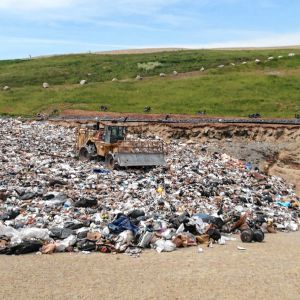Concord firefighters among first in the nation to get PFAS-free equipment
| Published: 03-18-2024 5:27 PM |
When former Concord firefighter Chris Andrews introduced himself to city councilors, he described himself as “a cancer survivor — at least for now.”
At the outset of his career, new types of protective gear, including the addition of breathing equipment and innovations in boot and pant materials, had made Andrews feel safer than his predecessors.
“I was part of a new generation,” he said. “I felt somewhat invincible.”
In his 40s, he listened when national organizations started to raise alarm bells about the presence of per-and polyfluoroalkyl substances, or PFAS, in the gear he had trusted to protect him. It made him vigilant about getting thorough health screenings at the first sign of trouble.
In 2021, that vigilance led to the discovery that he had prostate cancer and, after choosing to have his prostate removed, that it had been far more serious than his doctor originally thought.
“I was angry at the world,” he said. “And I have to live with it daily for the rest of my life.”
Andrews, now in his early 50s, will never know exactly what caused his cancer. But of all the dangers and carcinogens firefighters are exposed to in the line of duty, protective gear should not be on the list, he said.
Andrews was one of several firefighters who testified before City Council last week in favor of a proposal to immediately replace one set of protective gear for each of the city’s firefighters using newly developed, PFAS-free materials. With increasing evidence of cancer among firefighters being linked to PFAS in gear, they said, it was important to move fast now that alternatives are available.
Article continues after...
Yesterday's Most Read Articles
 Casella Waste Systems’ landfill project in New Hampshire’s North Country denied permit
Casella Waste Systems’ landfill project in New Hampshire’s North Country denied permit
 ‘Less finger pointing, more communication’: Longtime Chichester residents share hopes before second town meeting
‘Less finger pointing, more communication’: Longtime Chichester residents share hopes before second town meeting
 ‘The revenue just isn’t there’: House Finance Committee slashes $271M in jobs, services from Ayotte’s budget proposal
‘The revenue just isn’t there’: House Finance Committee slashes $271M in jobs, services from Ayotte’s budget proposal
 12 Concord student-athletes sign on to play at the collegiate level
12 Concord student-athletes sign on to play at the collegiate level
 ‘There was no oversight’: NH child advocate has been a watchdog for children's care. Now, the office is on the chopping block
‘There was no oversight’: NH child advocate has been a watchdog for children's care. Now, the office is on the chopping block
 Volunteer group wants to help homeless clean up their camp
Volunteer group wants to help homeless clean up their camp
Justin Kantar, president of Concord Professional Firefighters Local 1045, reported to the council that 37 people who had served on the fire department had been diagnosed with cancer, 15 of whom had died, and about 49% of firefighters will be diagnosed with some form of cancer in their lives.
“We are no longer willing to accept the narrative that cancer in the fire service is an unavoidable byproduct to the job,” said Brian Ryll, president of the Professional Fire Fighters of New Hampshire. “Supporting this resolution sends a clear and powerful message that the City of Concord protects those that protect Concord communities.”
In a unanimous vote, city councilors agreed. They approved $305,000 to replace the entire department’s primary gear, a total of 92 sets. Concord Fire’s practice has been to replace gear on a rotating basis; this purchase would change the practice to bulk replacement every five years, according to a city report. The department had foregone replacement of the old gear under the current budget in the hope of putting that funding, $35,000, towards this purchase, and the city also would have spent about $150,000 over the next four years on rolling gear replacement.
Concord Fire has been closely watching the development of PFAS-free materials, Chief John Chisholm said, and as soon as it became apparent that new gear would pass testing by the National Fire Protection Association, he went to the city manager’s office with this proposal for expedited replacement. He was “extremely happy,” he said, that it received strong council support.
The quick ability to secure funding will make Concord one of the first departments in the country to get PFAS-free turnout gear.
This purchase only replaces the primary suit of gear and does not include backups — worn during the hours when the primary set is being laundered. The Fire Department has recommended that the city look for grant opportunities to replace the second set, and, according to Mayor Byron Champlin, the city is currently discussing plans for rotating replacement of the backups.
PFAS, dubbed “forever chemicals” because of their inability to break down in the environment, are synthetic compounds often used in food products and clothing coatings to block heat, water, grease and stains. In concentrated levels, exposure to PFAS can mean an increased risk of certain cancers, including prostate cancer, among other health risks, according to the U.S. Environmental Protection Agency. The extent of those risks across the spectrum of different types of PFAS is still being studied, but the agency proposed limits on the chemical in drinking water for the first time last year, citing health risks.
PFAS has been used in fire gear for decades to shield against burns from water vapor, and as new protective materials without those chemicals are developed, firefighters nationwide are anxious to make a change.
Chisholm said that, in the week since the funding was approved, he has heard from fire chiefs from states across the country with questions about his department’s research and experience in securing new turnout gear. Because of constant communication with manufacturers by Battalion Chief Tom Nault, who oversees uniforms and protective equipment, Concord is ahead of the curve for obtaining of PFAS-free innovations, according to Chisholm.










 Henniker ponders what is a ‘need’ and what is a ‘want’
Henniker ponders what is a ‘need’ and what is a ‘want’ Boscawen residents vote to fund major renovation of public works building
Boscawen residents vote to fund major renovation of public works building ‘Voting our wallets’: Loudon residents vote overwhelmingly against $1.7M bond for new fire truck
‘Voting our wallets’: Loudon residents vote overwhelmingly against $1.7M bond for new fire truck In Pembroke, Education Freedom Accounts draw debate, voters pass budget
In Pembroke, Education Freedom Accounts draw debate, voters pass budget
